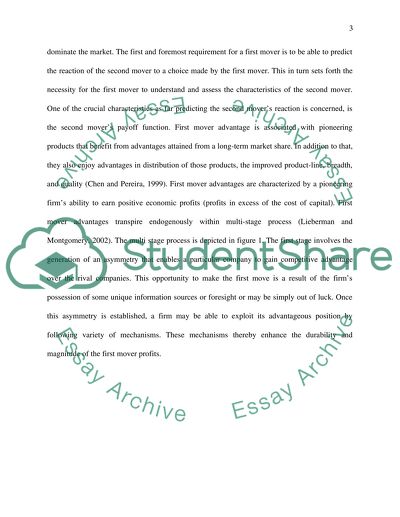Cite this document
(First Mover Advantage Essay Example | Topics and Well Written Essays - 2500 words, n.d.)
First Mover Advantage Essay Example | Topics and Well Written Essays - 2500 words. Retrieved from https://studentshare.org/macro-microeconomics/1493617-the-concept-of-first-mover-advantage-is-widely
First Mover Advantage Essay Example | Topics and Well Written Essays - 2500 words. Retrieved from https://studentshare.org/macro-microeconomics/1493617-the-concept-of-first-mover-advantage-is-widely
(First Mover Advantage Essay Example | Topics and Well Written Essays - 2500 Words)
First Mover Advantage Essay Example | Topics and Well Written Essays - 2500 Words. https://studentshare.org/macro-microeconomics/1493617-the-concept-of-first-mover-advantage-is-widely.
First Mover Advantage Essay Example | Topics and Well Written Essays - 2500 Words. https://studentshare.org/macro-microeconomics/1493617-the-concept-of-first-mover-advantage-is-widely.
“First Mover Advantage Essay Example | Topics and Well Written Essays - 2500 Words”, n.d. https://studentshare.org/macro-microeconomics/1493617-the-concept-of-first-mover-advantage-is-widely.


